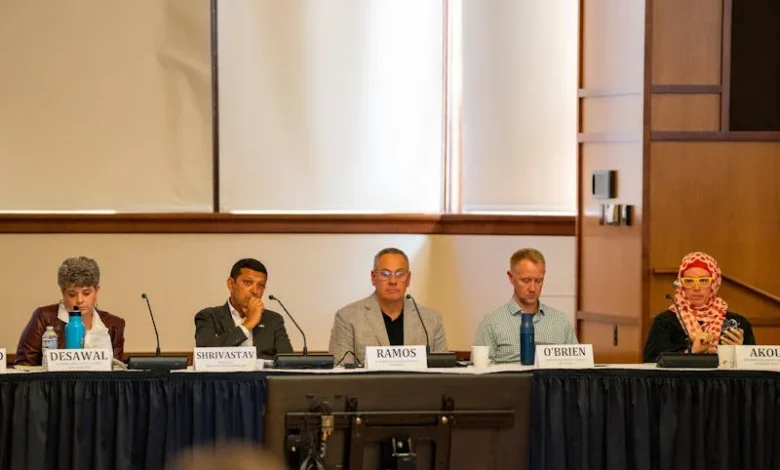Bloomington Faculty Council urges IU to reject Trump’s higher education compact

The resolution passed with overwhelming support from the council and a round of applause after the vote. At least 40 members voted yes and 11 abstained from voting.
Trump’s compact originally asked nine universities — not including IU — to agree to a broad set of conditions and academic values. These include freezing tuition, lowering foreign student enrollment to a limit of 15%, limiting political expression for university employees and requesting political neutrality from universities.
The introduction of the compact mentions that colleges and universities benefit from their relationships with the federal government — including access to loans and grants, federal contracts, research funding and the federal government’s approval of student visas. However, it does not explicitly offer preferential treatment.
The compact was originally sent to Brown University, Dartmouth College, Massachusetts Institute of Technology, University of Arizona, Vanderbilt University, University of Pennsylvania, University of Southern California, University of Texas at Austin and the University of Virginia on Oct. 1. On Oct. 14, the government extended the offer to all American universities. The deal also threatens severe financial consequences against colleges that are found to violate the compact after signing.
The Bloomington Faculty Council passed a resolution supporting emeritus faculty rights and discussed tenured faculty review during its first meeting of the semester Tuesday.
The deal also calls for a ban on the consideration of gender and race in admissions and to abolish institutional units that “purposefully punish, belittle, and even spark violence against conservative ideas.”
The offer does not explicitly mention a punishment for universities that reject the compact but states that universities that reject the plan are electing to “forego federal benefits.”
Seven of the nine original universities have rejected the offer, with Vanderbilt and Texas still internally discussing the deal. Since the BFC has been reduced to an advisory only status by language in Indiana’s 2025 budget bill, the final decision on an agreement to the compact will lie with the IU Board of Trustees and university administration.
“The compact is but one development in a series of coercive attempts on the part of the Trump administration to dictate the functions, mission, and ideology of higher education in the United States,” the BFC’s resolution to reject the compact read.
History professor Maria Bucur brought the resolution to the BFC.
“I feel very strongly that we need to do all we can to stand against the notion that there is anything good about making compromises of the sort the Trump administration is asking universities to do,” Bucur said in a text to the Indiana Daily Student.
The American Association of University Professors sent a 13-page letter Oct. 20 to several universities’ offices of general counsel offices, urging them not to sign the compact. The letter details alleged the compact violated First Amendment rights and federal grant law.
“While government officials possess broad power to enforce the federal civil rights laws and may use their bully pulpit to argue for the administration’s preferred educational policies,” the letter reads, “they cannot use the carrot or stick of federal benefits to coerce other speakers into waiving their own free speech rights, or the rights of third parties, to further the administration’s ideological aims.”





